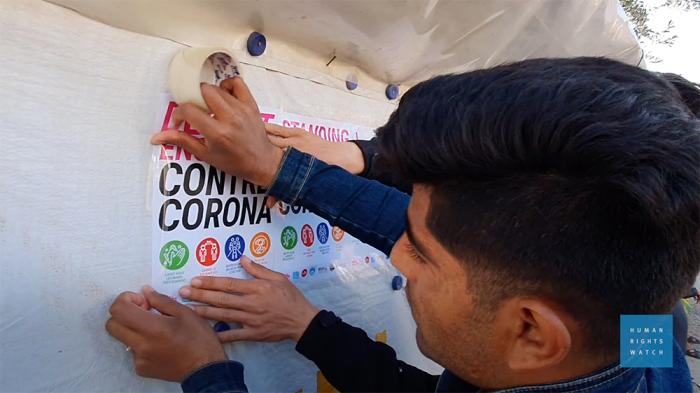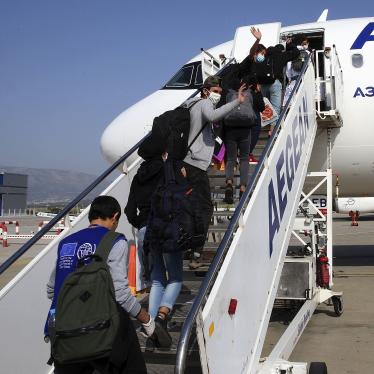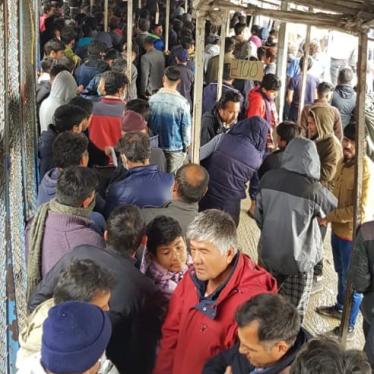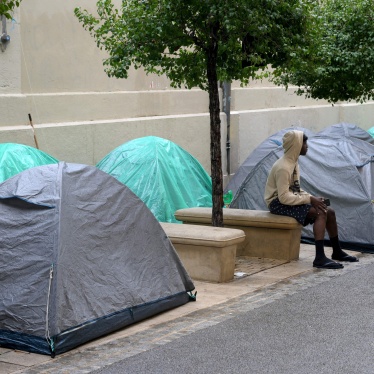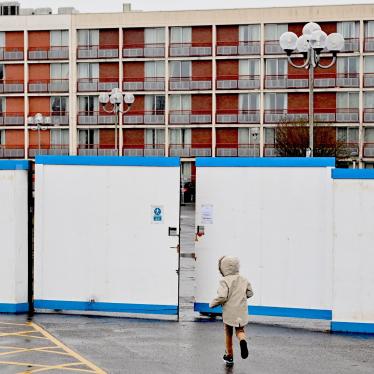The Greek government has begun easing lockdown measures, given the country’s success in keeping Covid-19 under control. Starting last week, people could leave their homes without authorization, most shops have re-opened, and older students have returned to the classroom.
However, the same is not true for asylum seekers or migrants living in accommodation allocated for migrants, either on the Greek mainland or in the overcrowded reception centers on the Aegean islands.
On Sunday, the government said it would extend lockdown measures in those centers until May 21, saying “urgent reasons of public interest … make it necessary to take measures to limit the spread of Covid-19 in areas of overcrowding, such as the RICs [reception centers] and the structures hosting third-country nationals.”
While taking steps to contain Covid-19 infections is key, Greek leaders should treat everyone – including migrants and asylum seekers – the same, without discrimination. And while restrictions on freedom of movement to protect public health can be necessary and justified, they have to be backed by scientific evidence.
These restrictions have no such grounding. By May 11, 2,726 Covid-19 cases and 151 deaths have been reported in Greece. This includes 11 cases in the local population on the islands hosting asylum seekers, according to media reports. No cases have yet been identified in the island camps.
In fact, Greek authorities, despite financial support from the European Commission, have not taken basic steps to protect the people in these centers from Covid-19. They haven’t addressed the overcrowding and lack of health care, or the lack of access to adequate water, sanitation, and hygiene products like soap. Despite announcing on April 16 that it would transfer 2,380 people from the island camps, to date the government has transferred only 823 people. As of May 6, 34,052 people lived in the camps on the Greek Aegean islands – over 6 times their capacity.
Additionally, in 2 newly established migrant facilities on the mainland, in Malakassa and Serres, over 2,000 newly arrived people have been kept in forced quarantine since March in unsanitary and cramped conditions, without evidence that any of them have contracted the coronavirus. The World Health Organization recommends a 14-day isolation period.
The Greek government should continue to reduce crowding at camps, lift arbitrary and discriminatory restrictions on migrants’ freedom of movement, and protect their health.

